We see updates on Windows frequently that come with security upgrades, bug fixes, and new features. Whatever it is, they can be downloaded and installed automatically and manually, if we choose to. Most of the users are able to install Windows updates automatically without any issues on their PCs. Some users face errors while downloading or installing Windows updates. They can be fixed easily and continue installing the updates. If you are facing download error 0x800f0806 while installing Windows 11 updates, this guide is for you. We have a few solutions that can help you fix the error 0x800f0806. Many people have faced this error while upgrading to Windows 11 Version 22H2.
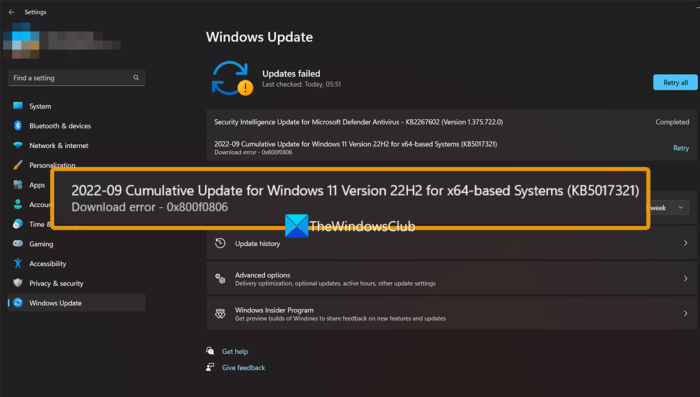
Fix 0x800f0806 Error while downloading or installing Windows 11 Updates
Some users are facing the download error 0x800f0806 while downloading and installing Windows 11 updates on their PC. If you face the same issue, the following methods can help you fix it and continue installing the updates without any error or issue.
- Restart your PC and try again
- Run Windows Update Troubleshooter
- Run SFC and DISM Scans
- Tweak Windows Update Services
- Reset Windows Update Components
- Manually download and install the updates
Let’s get into the details of each method and fix the issue.
1] Restart your PC and try again
The most common fix for all generic issues on Windows is to restart the PC and try doing it again. If you are seeing downloading error 0x800f0806 while updating Windows 11, try restarting your PC and see if it solves it.
2] Run Windows Update Troubleshooter
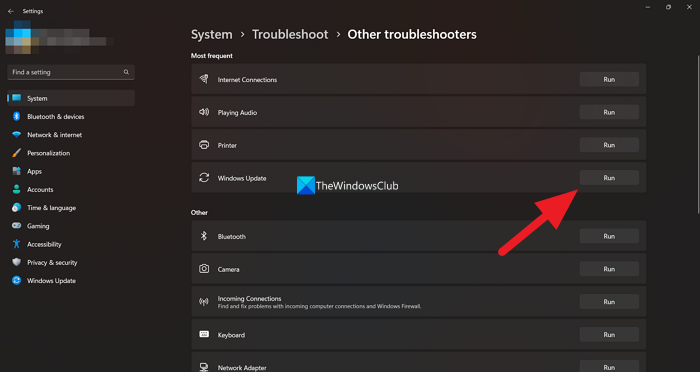
Windows comes with a bunch of troubleshooters that can help you fix almost all issues that generally occur on a PC. There is a troubleshooter for Windows updates too. Since the error is related to the Windows update, you need to run the Windows Update troubleshooter that is available in the Settings of your PC.
To run the Windows Update troubleshooter,
- Open the Settings app using the Win+I keyboard shortcut.
- In the System menu, you will see Troubleshoot tab. Click on it.
- Then, click on Other troubleshooters.
- You will see many troubleshooters there along with Windows Update. Click on the Run button beside it and follow the on-screen wizard to complete running the troubleshooter and fix the issues that are causing the error 0x800f0806.
Read: Windows Update Troubleshooter not working
3] Run SFC and DISM Scans
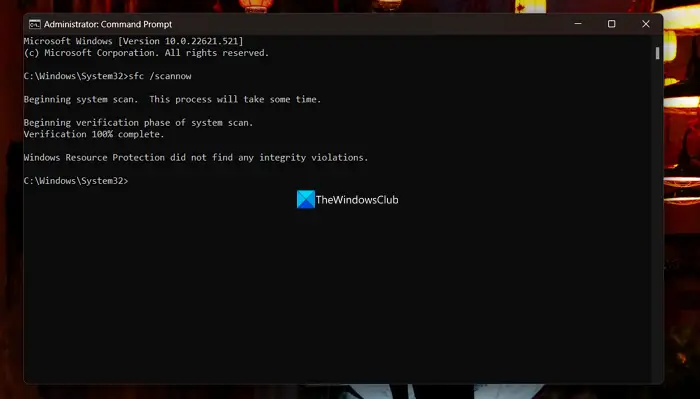
There might be any corruption in the System files or Image files on your PC. Or even the necessary files might be missing to check and run Windows updates. You need to run the SFC scan first to fix any issues that occur with the System files and then run DISM Scan to fix issues with the Windows image.
To run SFC and DISM Scans,
- Click on the Start menu and type cmd. You will see Command Prompt in the results.
- Click on Run as administrator to run elevated Command Prompt
- Now, type
sfc /scannowand press Enter. It will run an SFC scan which finds missing or corrupted system files and fixes them automatically. You will see the completion status in the Command Prompt itself. - After you are done with SFC Scan, type
Dism /Online /Cleanup-Image /RestoreHealthand press Enter which directly goes into fixing instead of scanning or checking health. If there are any issues with the Windows image, it will fix them automatically.
4] Tweak Windows Update Services
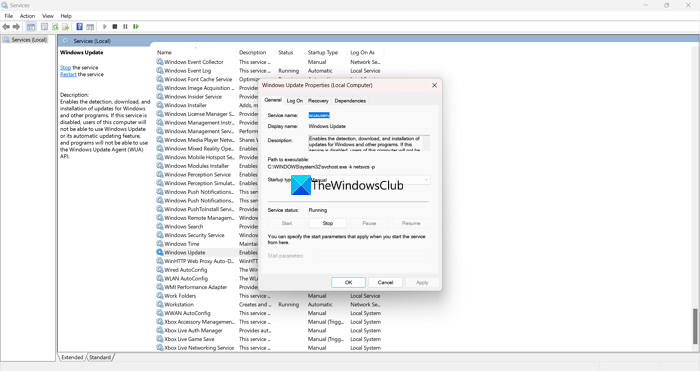
There are various services that are available on Windows that result in various functionings of PC. Windows Update service is one of those services which takes care of Windows updates. You need to Stop the Windows Update service and delete the components of the SoftwareDistribution folder and then restart the Windows Update service to fix the error 0x800f0806.
To disable Windows Update services,
- Press Win+R on your keyboard and type services.msc and press Enter
- It will open the Service windows. Find Windows Update among the services list and double-click or right-click on it. Then, select Stop.
- Now, open the Windows installation directory on your PC (C Drive) and open the Windows folder. Find the SoftwareDistribution folder and open it. Delete the components of the DataStore and Download folders in the SoftwareDistribution folder and accept the UAC prompts to continue deleting them.
- Then, open the Services window again and restart the Windows Update service by selecting Start.
See if it helps fix the download error.
5] Reset Windows Update Components
The other way to fix the error 0x800f0806 on Windows 11 is to reset the Windows Update Components. The process involves stopping Windows Update Services, deleting the qmgr*.dat files, flushing the SoftwareDistribution and catroot2 folders, resetting BITS service and Windows Update service to default, re-registering the BITS files and Windows update-related DLL files, deleting incorrect Registry values, resetting Winsock, and finally restarting Windows Update service.
6] Manually download and install the updates
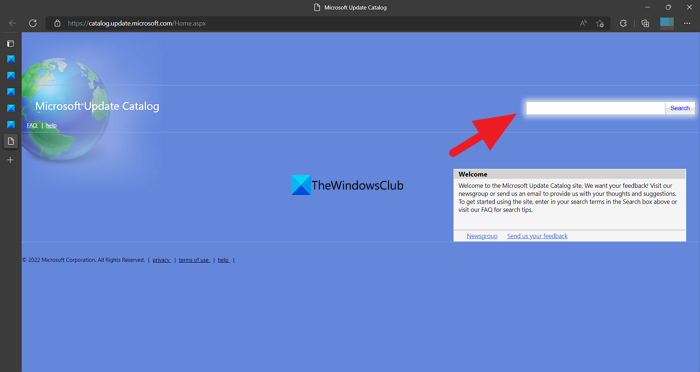
If none of the above methods help you fix the error 0x800f0806, you need to manually download the necessary files and install them. The files for the updates are available on Microsoft Update Catalog. You can just visit Microsoft Update Catalog website and search for the updates according to their update version or number and download them. After that, you can run the file normally as an installer.
If you face this issue while upgrading your Windows 11 to Windows 11 2022 Update, then we suggest you use the Windows 11 Installation Assistant to do the same.
These are the different ways you can fix the download error 0x800f0806 on Windows 11.
Read: Windows Update failed to install or will not download.
How do I fix Windows Update 11 error?
You can fix the Windows 11 Update error in many ways. First of all, you need to run the Windows Update troubleshooter that is available in the Settings app of your PC. If that does not fix the error, you can run SFC and DISM scans, flush the SoftwareDistribution folder, reset Windows Update components, and install the update manually if all else fails to fix it.
Why is Cumulative Update not installing?
The files that are necessary to download and install the cumulative update might be corrupted or missing, or the Windows Update service is stopped, the antivirus might be stopping it, etc. You can fix them easily by running the Windows Update troubleshooter, SFC, and DISM scans, starting the Windows Update service, etc.
Leave a Reply